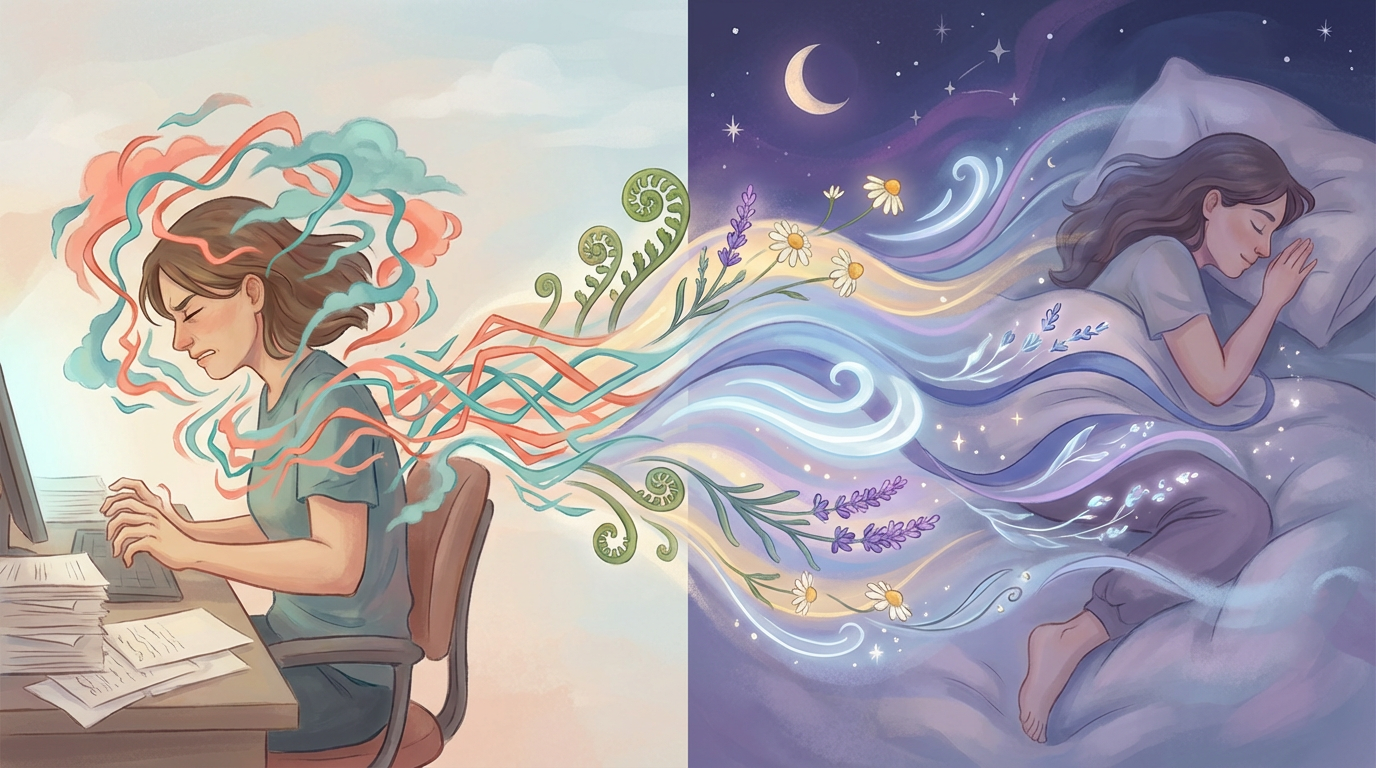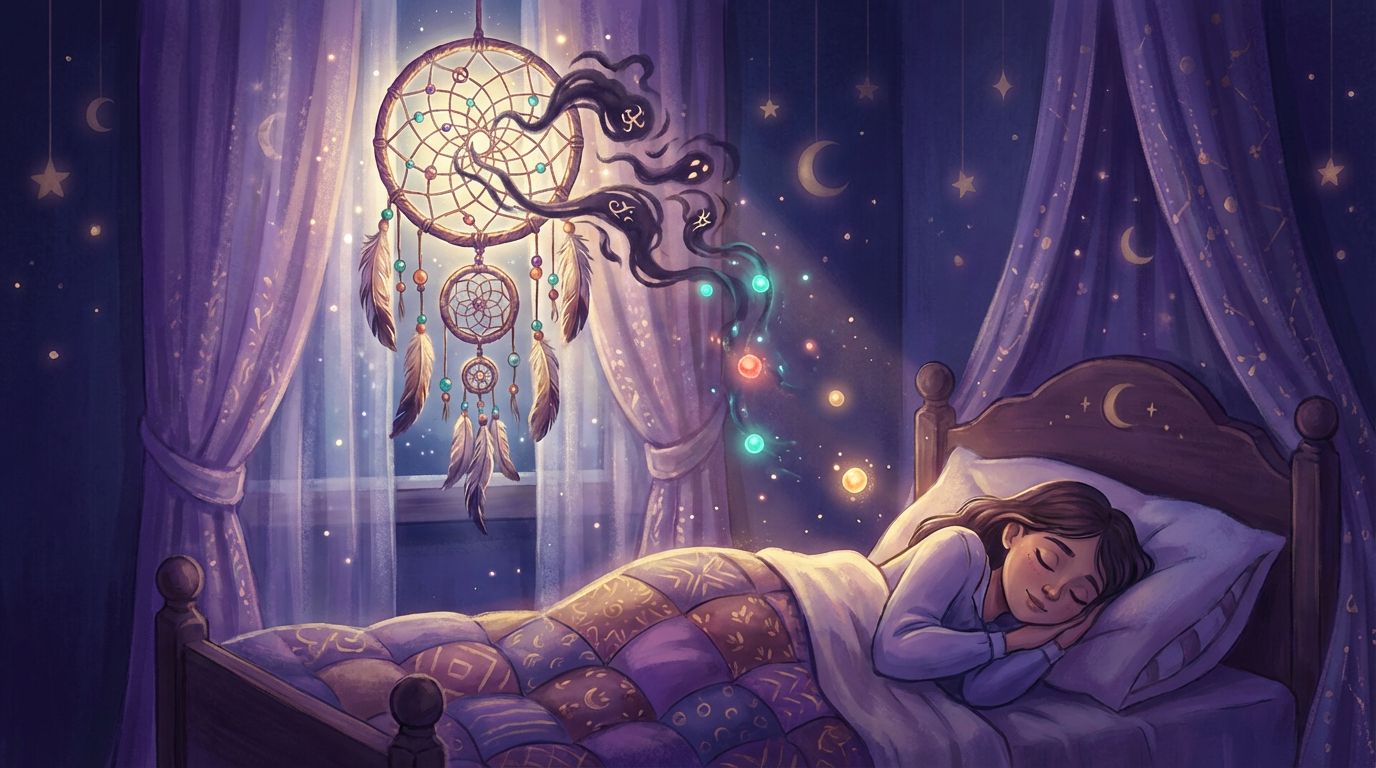
Common Questions About Dreams Answered
Ever wondered what dreams are and how they happen? Why do we have vivid dreams? Do dreams reveal anything about our thoughts? These are just a few of the many questions people have about the nature of their dreams.
While we know they happen during our slumber, and we can feel ourselves experiencing them while asleep, what do we know about them?
7 Dream Theories
Regardless of their exact purpose, it is clear that dreams play an essential role in our lives. And while we still do not fully understand the meaning of dreams, several theories attempt to explain their function.
Threat Simulation Theory
The threat simulation theory suggests that dreams evolved as a way to help us interpret and respond to potential threats in our environment. According to this theory, dreams are ancient biological defense mechanisms that have become integral to our being. When we dream, we simulate different scenarios and test various possible responses.
Dreams also help us to consolidate memories and learn from our experiences. This theory explains why many of us have dreams based on past experiences or those feature elements of fear or anxiety.
Sigmund Freud's Wish Fulfillment Theory
According to Sigmund Freud, dreams are a way for our subconscious to fulfill our desires. Based on this theory, many actors constrain the realities of our waking life, and dreaming allows us to explore many of these possibilities freely.
Sigmund Freud suggests that we dream to satisfy our wishes and longings. Many famous works of literature, such as plays and novels, use this idea, with characters often dreaming about things they desire but cannot have in waking life.
While there is no scientific proof for the wish-fulfillment theory, it remains a popular explanation for why we dream.
Carl Jung's Mental Expression Theory
Dream interpretation is the process of assigning meaning to dreams to gain a better understanding of the dreamer's waking life. While Freud believed that dreams were a way for the unconscious mind to express itself, Jung disagreed.
Instead, Jung proposed that dreams were a way for the individual to connect with the collective unconscious. Jung believed that our unconscious is a storehouse of knowledge and experience shared by all humanity.
The mental expression theory is a dream interpretation tool that offers a way to understand the dreamer's innermost desires and fears. It also helps to explain why certain symbols and themes appear in dreams. For example, if someone dreamt of being chased by a large animal, Jung would interpret this as a fear of being overwhelmed or overpowered.
Using this theory, dream analysts gain an understanding of the dreamer's mental state; it is possible to provide valuable insight into their waking life.
Tonic Immobility Reflex
The tonic immobility theory of dreaming is a fascinating and somewhat controversial topic in sleep research. This theory suggests that dreams are a byproduct of the body's paralyzing defense mechanism during sleep.
Information Processing Theory
The information processing theory posits that dreams are a way for our minds to process information and experiences from the day. During sleep, our brains sort through this information and determine what is essential and worth storing in the memory.
Activation-synthesis Theory
The activation-synthesis theory is a highly influential neuroscientific account of dreaming. According to this theory, dreams originate from neural signals in the brainstem generated during sleep in REM (rapid eye movement) sleep.
These signals stimulate the cortex, synthesizing them into our experience's dream content. Although a great deal of evidence supports the activation-synthesis theory, it remains a debate among sleep researchers.
Some have suggested that dreaming may serve an adaptive function, such as helping us to process and make sense of our waking experiences. Others have argued that dreams are simply a byproduct of brain activity during sleep.
Whatever the case, the activation-synthesis theory provides an essential framework for understanding the neurobiology of dreams.
Self-organization Theory
The self-organization theory of dreams states that the brain self-organizes neuronal signals. The fact that most dreams are nonsensical and incoherent validates this theory. The brain reorganizes information during sleep to create a new narrative.
The self-organization theory explains why people often remember fragments of their dreams and why they are often difficult to interpret.
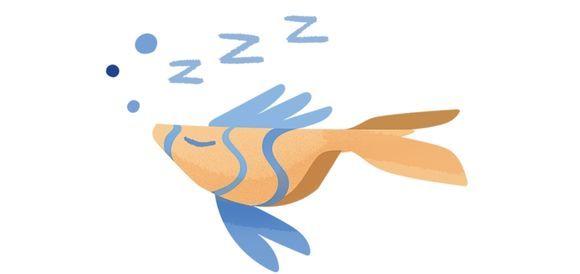

Benefits of Dreaming
Most people think of dreams as nothing more than the flotsam and jetsam of the subconscious, meaningless images that arise without rhyme or reason. However, recent research suggests that dreams may be essential in our lives.
Helps Manage Complex Emotional Processes
One of the benefits of dreaming is that it allows us to deal with complex emotional processes. Dreams can give us insight into our feelings and emotions and help us understand them better.
These insights from our dreams help resolve conflicts and cope with difficult situations. Dreaming also allows us to work through past emotional issues and provide relief from emotional stress.
Serves as an Overnight Therapy
So why are dreams so important? Simply put, they help us to stay healthy and happy. Dreams allow us to explore different aspects of ourselves and may hold the key to our spiritual growth. They can also provide comfort and inspiration, giving us hope during difficult times.
Dreaming Helps with Depression
While it is still unclear why we dream, research has shown that dreams can profoundly affect our mental and emotional health. For instance, dreaming can help to reduce stress and anxiety levels and alleviate symptoms of depression.
Dreams provide us with a way to process our emotions and release the pent-up feelings that can lead to negative mental states. In essence, dreams serve as a psychological relief valve, allowing us to vent our emotions in a safe and non-destructive way. Consequently, if you are struggling with depression, allow yourself to dream—it might help you feel better.
Dreaming Improves Creativity and Problem-solving
Dreams improve creativity and problem-solving skills. In recent years, however, scientists have begun to unlock the secrets of dreams and found that it is a helpful tool for problem-solving.
When we dream, our minds are free to explore different solutions to the problems that we are facing in our waking lives. Dreaming allows us to enter a state where the laws of physics or logic do not limit us. As a result, dreams can be a powerful tool for finding creative solutions to difficult problems.
Dreams also seem to "reorganize" information to help us see solutions to problems we might not have thought of before. So if you're stuck on an issue, try taking a nap – you may find the answer in your dreams!


How long does a dream last?
There is no definitive answer to this question, as some sources claim the average person is estimated to dream for around two hours nightly. Others suggest that dream lengths vary from person to person.
Dreams also usually happen during REM (rapid-eye movement) sleep, which lasts approximately 10 minutes. Though REM sleep is known for lasting up to 45 minutes, it's unclear how much of that time is spent dreaming. In some cases, dreams only last as long as 20 minutes or hardly any time at all—though there's no data confirming exact durations of dreams, as opposed to estimates.
How to Interpret Your Dreams?
There is no shortage of theories about the meaning of dreams. One approach to understanding dreams is to interpret them in light of your personal experiences and beliefs.
With that in mind, here are a few tips to help you get started with interpreting your Dreams:
1. Pay attention to the emotions you feel in your dream. These can be clues about what the dream is trying to tell you.
2. Notice the people, places, and things in your dream. They may represent aspects of yourself or your life experiences.
3. Ask yourself what the dream could be trying to teach you. Dreams often contain messages about our relationships, careers, or personal growth.
4. Keep a dream journal to track your dreams over time. Dream journals can help you see patterns and notice any changes in the content or frequency of your dreams.
5. Share your dreams with a trusted friend or therapist who can offer supportive feedback and help you explore their meaning further. With a bit of exploration, you can unlock the hidden meanings of your dreams and use them as a tool for self-discovery and personal growth.
Interpretations of Common Dreams
Factoring on your experiences and beliefs will allow you to gain insight into your subconscious mind and work through personal issues. However, it is essential to keep in mind that there is no one-size-fits-all when it comes to interpreting dreams.
Here are some of the common dream themes and how dream analysts interpret them:
What is the meaning of nightmares?
Many people commonly interpret nightmares as warnings from their subconscious. They may feel that their nightmare is trying to tell them something about their life or situation.
Nightmares serve as a way for the subconscious to release feelings or emotions that are too difficult to deal with consciously. For this reason, nightmares are often more intense and emotionally charged than regular dreams. For some people, nightmares can be a way to work through traumatic events or experiences they have had.
Dreams about falling
Many people interpret dreams about falling as a sign that they are in danger or that something is wrong in their lives. They may also consider falling in dreams as a sign of losing control of their life or feeling overwhelmed.
If you dream about falling from a great height, this may signify that you feel you are in over your head in some area of your life.
Dreams about losing teeth
When people dream of losing teeth, people interpret it as a sign that they are worried about their appearance or communication ability. Teeth are symbols of power and strength, so teeth falling out in a dream can be interpreted as a sign that the dreamer feels powerless or vulnerable.
Sometimes, losing teeth in a dream can signify the dreamer experiencing some emotional pain.
Dreams about pregnancy
When dreaming of being pregnant, many people interpret it as a sign of good things. Specifically, interpreters consider it an indication of new life and growth in other areas of the dreamer's life. For instance, someone who dreams of being pregnant may be in the process of completing or starting a new degree or other major life projects.
Dreams about being chased
People interpret chasing dreams as a way of avoiding the cause of anxiety in their waking life. The dreamer is typically trying to outrun the source of their concern, which signifies denying or avoiding the problem. These dreams serve as a warning sign that the dreamer needs to address the cause of their anxiety head-on.
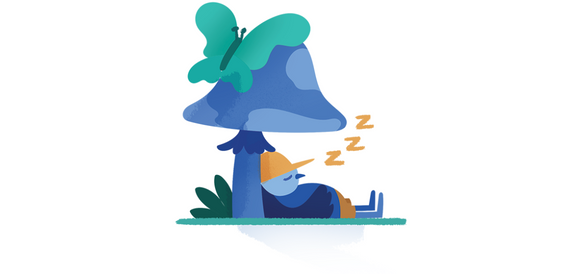

Can you dream about someone you've never seen?
While it's impossible to know how possible it is without taking some complicated steps beforehand, some have theorized that we can invent fictional people in our minds while we dream.
However, our minds may have conjured up images of people based on bits and pieces of others we see in our waking lives—whether hanging out with them or just strangers we see on the subway. With that in mind, who's to say the people in our dreams aren't people we've seen before in real life?
What does it mean to see a lot of cats in your dream?
Why do you sometimes dream in black and white?
It isn't as uncommon as you think if your dreams aren't always in color! Should this be the case, it's likely because you're observing what's happening in the dream rather than fully participating.
Though it's not the norm, some people have claimed that they either dream entirely in black and white or only sometimes. That said, those who most often dream in color don't usually remember their black-and-white ones, and those black-and-white dreams are believed to be experienced more frequently by older populations.
How do you know if you're in a dream?
Recognizing that you're in a dreamlike state is also known as lucid dreaming. This is where you're more able to vividly understand what's happening within the dream and have some amount of control over its narrative.
You also experience this type of dream during REM sleep. If you want to have more lucid dreams while asleep, try keeping a dream journal. Keeping a dream journal will allow you to be more aware of what's happening in your dreams since you'll write down what you remember from previous ones!
How can explore my dreams?
Dreams are a fascinating phenomenon. They can be vivid and realistic, or they can be strange and abstract. Sometimes, we can even control what happens in our dreams.
The ability to control a dream is called lucid dreaming. It can be a powerful tool for exploring our subconscious mind. Lucid dreaming occurs when we become aware that we are dreaming. This awareness can allow us to take control of our dreams and direct them in whichever way we choose.
For example, if we fear public speaking, we can use lucid dreaming to confront that fear in a safe and controlled environment. Alternatively, we can use lucid dreaming to explore our deepest desires and fantasies. Whether we want to overcome our concerns or have some fun, lucid dreaming can be an incredibly powerful tool for self-discovery.
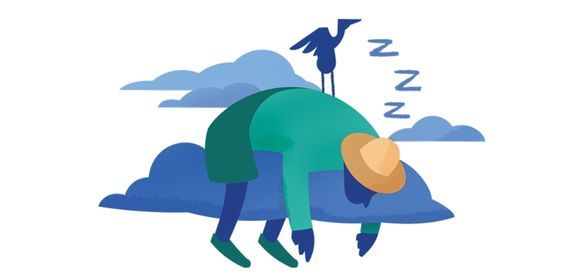

Dream Analysis and Interpretation Are Imperfect Sciences
There is no single answer to the question of what dreams mean. Dream analysis and interpretation are imperfect sciences, and different people may have different opinions about the meaning of a particular dream. However, some general principles can help us understand the symbolism of dreams.
For example, many people believe that dream objects and characters represent aspects of the dreamer's personality. Dreams may also reflect the dreamer's current situation or past experiences.
In some cases, dreams may even foretell future events. Ultimately, however, the true meaning of a dream is something that the dreamer can only interpret.
Tips to Induce Pleasant Dreams
Dreams can be interesting, confusing, or even downright weird. But whether they're good or bad, everyone has them. Some people always have pleasant dreams, while others only have nightmares. So what's the difference? Is there a way to induce pleasant dreams?
You can do several things to increase your chances of having pleasant dreams. Follow these tips, and you'll be well on your way to experiencing more pleasant dreams!
1. Keep a dream journal to track your dreams and their meaning.
2. Follow a regular sleep schedule. A regular sleep schedule allows a person to have a night of quality sleep, often a precursor of pleasant dreams.
3. Create a relaxing bedtime routine, including 30 minutes before sleep.
4. Avoid using electronics in the bedroom, watching television, or working on the computer close to bedtime.
5. Limit caffeine intake and avoid eating large meals before bedtime.
6. Make sure your sleeping environment is dark, quiet, and calm.
7. Practice relaxation techniques such as deep breathing, progressive muscle relaxation, and listening to calming music to help induce sleepiness.
Wrap Up
People have been wondering about the meaning and purpose of dreams for centuries, but no one has been able to provide a satisfying answer.
It's normal to feel curious or even frustrated by dreams. After all, they're some of the most mysterious things we experience. Even today, there is still a lot of mystery surrounding dreams. What are they trying to tell us? Why do we have them?
Many philosophers put forth theories that offer interesting insights into the world of dreaming. These dream theories have a unique take on why people dream and what these dreams might mean.














